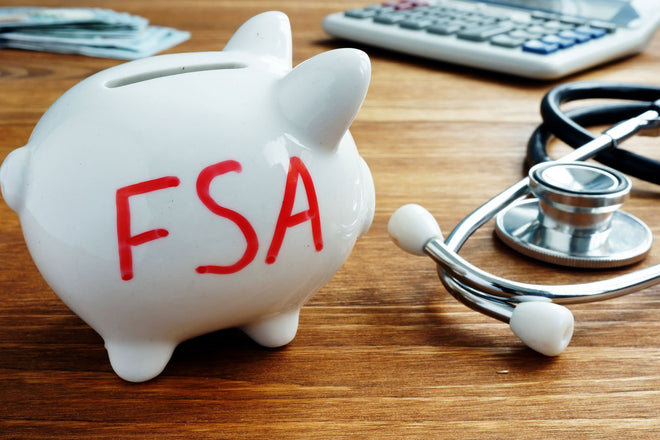During the year, unexpected health expenses can crop up and strain the family finances. To help mitigate health care expenses, FSAs and HSAs were created so that families can plan for unexpected medical expenses.
In my professional experience, I’ve seen patients frantically make appointments for their eye exams before the end of the year. They spend hundreds of dollars on multiple pairs of eyeglasses, contact lenses, and eye accessories, just so they don’t lose the money they’ve saved up in their FSA accounts.
The last two weeks of December are usually quite busy for me because people realize how much money is in their FSA and HSA accounts and rush to make an appointment, resulting in long wait times for everyone to be squeezed in for an eye appointment before the new year.
Are Reading Glasses FSA/HSA Eligible?
Overall, reading glasses are eligible for FSA/HSA coverage, much like all your other eyewear, including prescription eyeglasses, contact lenses, prescription sunglasses, eye exam copays, and deductibles.
Furthermore, FSA/HSA accounts can be used in optical stores and online retailers that sell eyeglass-related products.
However, not all retailers accept HSA/FSA cards for payment. In this case, you can pay for your eye-related purchase with a regular debit or credit card and send the receipt to your FSA/HSA provider for reimbursement.
What are FSAs and HSAs?
An FSA is a “Flexible Spending Account” and is offered by most employers. FSAs are essentially savings accounts that a portion of your pretax income goes into at every pay period. The important thing to remember is that whatever money is put into an FSA account must be spent by the end of the year or it will be lost. So, you must keep track of what’s in your FSA account and spend it on medical expenses before the year ends. In this case, eyeglasses, eyewear accessories, and eye exams can all be paid for by an FSA account.
An HSA or “Health Savings Account” is also a savings account that you can put pretax income into each pay period. HSAs are individually owned, so they are not linked to your employer. You can also roll the money over to next year, unlike FSAs that must be spent within the calendar year or forfeited. Like FSAs, HSAs can also be used to help pay for eyeglasses, eyewear accessories, and eye exams.
After establishing an FSA or HSA account, you will be mailed a card that acts like your debit or credit card to pay for your eyewear, accessories, or eye exams, as well as any other qualified medical expenses.
Final Thoughts
HSA and FSA accounts are a great way to mitigate health care expenses—especially eyewear, eye accessories, and eye exams. However, there are so many types of FSA and HSA accounts, each with its own specific rules and requirements, that it’s always wise to check the policies on your FSA/HSA before making any purchases. That way, you can be sure your eye-related purchases are eligible for reimbursement.
Don’t lose your FSA/HSA Dollars!





